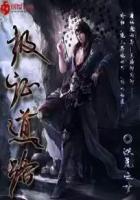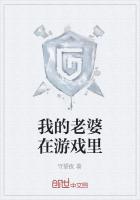Breakfast of Champions:Estrangement of Father and Son
In Breakfast of Champions(1973),both of the two protagonists are loners and highly dependent on their pets。 The very first sentence of the story announces their state of loneliness:“This is a tale of a meeting of two lonesome, skinny, fairly old white men on a planet which was dying fast”(BC 7)。Soon after that, in Chapter 2,their intense attachment to their pets is made explicit, in a parallel manner。We are frst told that Dwayne Hoover is a widower。His only companion at night is a Labrador retriever named Sparky。Although he has a black servant and he likes her, Dwayne doesn't talk much with her but reserves most of his conversation for the dog。
He would get down on the foor and roll around with Sparky, and he would say things like,“You and me, Spark,”and“How's my old buddy?”and so on。
And that routine went on unrevised, even after Dwayne started to go crazy, so Lottie had nothing unusual to notice。(BC 18)
Kilgore Trout, we are then told, is a long neglected science-fiction writer。 He owns a parakeet named Bill。“Like Dwayne Hoover, Trout was all alone at night, except for his pet。Trout, too, talked to his pet。”(BC 18)
But while Dwayne babbles to his Labrador retriever about love, Trout sneered and muttered to his parakeet about the end of the world。
“Any time now,”he would say。“And high time, too。”
It was Trout's theory that the atmosphere would becomeunbreathable soon。
Trout supposed that when the atmosphere became poisonous, Bill would keel over a few minutes before Trout did。 He would kid Bill about that。“How's the old respiration, Bill?”he'd say, or,“Seems like you've got a touch of the old emphysema, Bill,”or,“We never discussed what kind of a funeral you want, Bill。You never even told me what your religion is。”And so on。(BC 18)
When zoologist James Serpell tried to solve the riddle that though in the 1960s pet keeping had become a popular practice, it held no social or cultural significance and“almost nothing had been written about it”,he concluded that one of the reasons that pet keeping was not taken seriously was a widespread superstition that it was somehow perverse, strange and wasteful(Franklin 95)。 Here in Breakfast of Champions, the cases of Dwayne and Trout can be counted as nearing perversity and strangeness。The way they seek communication and talk to their pets instead of fellow humans is clearly out of the normality。What is behind their grotesqueness?
On the surface, Dwayne and Trout are the antithesis to each other in every aspect。 Dwayne is“fabulously well-to-do”(BC 13)。He is a highly successful Pontiac dealer who owns extraordinary portions of the town's properties—three Burger Chefs, five car washes, pieces of a drive-in theatre, and a par-three golf course。Beside, he is generally well-liked and respected as one of the pillars of society in Midland City。Trout, on the contrary, is poor and neglected。Although he has written“one hundred and seventeen novels and two thousand short stories”,he remains a“nobody”,a“dirty old man”living in a basement apartment in Cohoes, New York, making a living as an installer of aluminum combination storm windows and screens(BC 7,15,20)。
On the level of personal life and emotional needs, however, the two men share a lot in common。 First of all, they both live a single life, one as a widower, the other a divorced man。Dwayne's wife has committedsuicide by swallowing Drano,“a mixture of sodium hydroxide and aluminum flakes, which was meant to clear drains”(BC 65)。After that,“Dwayne never wanted to hear about love ever again。The subject was too painful”(BC 152)。Trout married three times and all three wives were“extraordinarily patient and loving and beautiful”,but each of them was“shriveled by his pessimism”and left him(BC 110)。As children, neither of the men enjoyed happy childhood。Dwayne is an illegitimate son of a spinster school teacher who wrote sentimental poetry and was seduce by an itinerant typesetter who promised to set her poems to type。His mother died at childbirth and the father sneaks away afterwards。Dwayne had to spend“the first three years of his life in an orphanage”before he was adopted by a couple who moved to Midland City from West Virginia“in order to make big money as factory workers in the First World War”(BC 45,64)。In the case of Kilgore Trout, he was not born within the border of America but in Bermuda, where his father worked for many years for the“Royal Ornithological Society”guarding the only nestling place in the world for Bermuda Erns, the“largest creatures ever to fly under their own power on the planet”。
“These great green sea eagles eventually became extinct, despite anything anyone could do”。Watching the big bird die one by one, the boy had a depressing childhood, more so because his father“assigned him the melancholy task of measuring wingspreads of the corpses”(BC 30,31)。The experience plants seeds of pessimism in the heart of Trout, so that when he grows up his pessimism destroys his three marriages and drives away his only son。
The estrangement between father and son constitute another major factor that contributes to the men's loneliness。 Trout's son, Leo, leaves him at the age of fourteen。Determined to stay away from him forever, Leo lies about his age and manages to join the Marines。He is sent to Vietnam, where he deserts from his division and allegedly joins the Viet Cong and is now wanted by the F。B。I。The last time Trout hears from Leo is a notehe sends from boot camp, which says,“I pity you。You've crawled up your own asshole and died”(BC 111)。Dwayne's relationship with his son is no better。They haven't exchanged words for many years。For Dwayne, it is unacceptable that Bunny Hoover, his only child,“had grown up to be a notorious homosexual”(BC 65)。
Sending him to a military institute at the age of ten doesn’t help“cure”him but only intensifes it, for homosexuality,“buggery”,is one of the three things Bunny does in the eight years in the military academy。The other two are sports and Fascism(BC 180)。He is eventually dismissed on account of it, in spite of all the medals he has won。Dwayne’s resentment for his son’s homosexuality eventually breaks up when, in the sudden attack of schizophrenia in which he sees everybody as robots and machines, he takes Bunny to be his frst victim。He“rolled it[Bunny’s head]like a cantaloupe up and down the keys of the piano bar”,terribly mangled his face。All the while, he called his son“a god damn cock-sucking machine”(BC 258)。On the part of Bunny, he fosters not much affection for his father either。When he is home on vacation,“his mother would tell him when his father is out of hearing that she was becoming unhappier with each passing day。
She would hint that Dwayne was a monster”(BC 180)。Although it is not explicit in the novel, it is understandable that Bunny may have developed hatred for his father。His practice of Transcendental Meditation to“absent himself from the cocktail lounge, and from the planet itself”can be taken as a determined gesture to refuse anything to do with his father and the world alike(BC 177)。In contrast to the fabulous wealth of his father, Roy lives a simple and poor life by himself, in the most dangerous neighborhood of the town known as“Skid Row”,“a place where people who didn’t have any friends or relatives or property or usefulness or ambition were supposed to go”(BC 183)。
After picking up the bits of clues and details dispersed randomly in the labyrinthine narrative, we obtain a clearer picture of the two leading heroes:despite their differences in social status and financial conditions, Dwayne and Trout are both lonesome aging men who had unhappy childhood, unhappy marriages, and unhappy relationship with their sons。
According to a 1988 survey by sociologists Albert and Bulcroft, emotional attachment towards pets vary by a number of social/family variables, such as marital status and stage in life cycle。 They fnd that
[……]never-married, divorced, and widowed people, as well as people who are involved in a second or subsequent marriage, score higher on pet attachment than do cohabitating couples and people who are in first marriages。 People who do not have children and those who do not have children present in the home also feel closer to their pets。(548)
The study actually confrms what Keith Thomas says in his infuential monologue, Man and the Natural World:“Sterilised, isolated and usually deprived of contact with other animals, the pet is creature of its owner's way of life;and the fact that so many people feel it necessary to maintain a dependent animal for the sake of emotional completeness tells us something about the atomistic world in which we live”(Thomas 119)。 It explains why Dwayne and Trout are so intensely attached to their pets。The Labrador retriever and the parakeet are important sources of affection and solace which the men are desperately yearning for。With their close social ties cut off or lost, whether voluntarily or passively, their sense of ontological security becomes disturbed。
The pets become crucial to keep their mental and emotional balance。 This is particularly the case with Dwayne。For Trout, the parakeet is mainly a partner to talk to and a listener to share his thinking with, thus distilling his defeatist pessimism。But for Dwayne, the dog is the only source of emotional comfort and sense of fellowship。When Dwayne manages to get over his frst suicidal impulse, he says to the terrifed dog,“You and me, Sparky。”The talk is oddly intimate and nervously contracted, revealingthe psychological tension of the speaker。The narrator adds,“He sure loved that dog”(BC 52)。The dog's incapability to respond only intensifes Dwayne's loneliness and desperation。An important detail to note is that when Dwayne overcomes the impulse to kill himself and shoots up one of his tiled bathrooms instead,“[n]obody heard the shots”,because“[a]ll the houses in the neighborhood were too well insulated for sound ever to get in or out”(BC 52)。When he turns on the foodlights around his house and plays basketball outside his five-car garage, nobody sees him either, because“[h]e was screened from his neighbors by trees and shrubs and a high cedar fence”(BC 52)。The only“person”with Dwayne in this moment of crisis is Sparky, who comes out from the hiding place after the shooting and“watched Dwayne play basketball”(BC 52)。
The insulation and screening are highly symbolic in the novel。 They are metaphors for the barrier of communication between people and signify the dehumanizing segmentation of urban existence。In protecting themselves from danger and harm, people isolate themselves into lonely islands,“locked into little boxes”,as Vonnegut says。The traditional community where people know each other and share with each other news and feelings is gone。Nobody cares about what is happening next door。Although Dwayne shows early signs of insanity, his“cries for help”are largely ignored by people around him。People are too obsessed with their own troubles and misread the signals。Harry Lesabre, Dwayne's white sales manager, mistakes Dwayne's irrational insults of his clothes as a sign of discovery of his secret transvestite hobbies and gets terribly upset(BC 48)。Vernon Garr, a white mechanic, has not noticed the change in Dwayne because his wife is a schizophrenic who believes that“Vernon was trying to turn her brains into plutonium”。Like Dwayne, Vernon would go home every day and“talk for hours to my fucking dog”(BC 42,44)。The only person that is really close to Dwayne, Francine Pefko,“his white secretary and mistress”,thinks Dwayne, instead of going insane, is“getting happierand happier”because she hears him sing songs popular in his youth。She thinks,“He is fnally getting over his wife's suicide”(BC 40)。
In this confusion of understanding and misunderstanding, Dwayne is left alone to combat the overwhelming symptoms of insanity。 The physical condition of Sparky, the Labrador retriever, is highly symbolic of Dwayne's helplessness。
Sparky could not wag his tail—because of an automobile accident many years ago, so he had no way of telling other dogs how friendly he was。 He had to fght all the time。His ears were in tatters。He was lumpy with scars。(BC 17)
Like Sparky, Dwayne has lost effective means to communicate with people, to make people understand his troubles。 When he says to Francine,“I've lost my way[……]I need someone to take me by the hand and lead me out of the woods”,his mistress can only suggest that he take some rest or go to a doctor, which means little help to Dwayne(BC 167)。His is the trouble of self-identity, the confusion about his ontological existence。“Fabulously well-to-do”as he materially is, his spiritual world is one of chaos, confusion, and fragmentation。When on the roof of Holliday Inn, he sees Midland City, the place where he grew up and owns half of its properties, as“unfamiliar and frightening”and wonders,“Where am I?”(BC 64),when he fnds himself walking unsteadily to his Pontiac agency as if the ground had turned into a trampoline(BC 95),when he talks to people with uncontrollable echolalia, involuntarily repeating out loud whatever has just been said by the other(BC 131),he is suffering not only incipient outbreaks of mental illness, but also a severe case of“ontological insecurity”。
The term“ontological insecurity”is used by a number of scholars to describe“the essential state of privatism and social isolation of modern individuals and cultures in the West”(Franklin 56)。 According to AdrianFranklin, who draws mainly on the theories“ontological security”of Anthony Giddens, the social transformation of postmodernity such as the decline of local community and the fragmentation of family and domestic organization has created“confusion, loss, unpredictability and anxiety”(57)。What Dwayne suffers from is exactly this loss of security。The world is losing its consistent meaning to him, becoming fragile and ephemeral。Nothing is any more certain, firm, meaningful, and controllable to him。When he says to Sparky,“you and me”,we can imagine his desperate grappling for anything palpable and dependable。As Franklin observes,“the love of animals and the desire to have them closer to us can, in part, be related to ontological insecurities”and“animals become substitute love objects and companions precisely because they can be involved in enduring relations of mutual dependency”(57)。However, unfortunately, Dwayne's disorientation is off the limits and the dog can no longer fulfll the desired effect。
In effect,“tragic failure to communicate”is a major theme in the novel(BC 58)。 When Trout asks the truck driver why his brother-in-law names his trucking company“Pyramid”,the truck driver answers,“He likes the sound of it”(BC 110)。Words are no longer valued as signifers of meaning but as clusters of sound only。In a science-fction story Trout writes in his later life, the language keeps turning into pure music in a planet where creatures are so enthusiastic about sounds。
Words became musical notes。 Sentences became melodies。They were useless as conveyors of information, because nobody knew or cared what the meanings of words were anymore。
So leaders in government and commerce, in order to function, had to invent new and much uglier vocabularies and sentence structures all the time, which would resist being transmuted to music。(BC 110)
Vonnegut must have felt such a danger in his times, a danger that people turn a deaf ear to conventional language, regardless how urgent the message it carries is。 His employment of juvenile illustrations, vulgar language, and impolite subject matters such as the ubiquitous measurement of man's penis and women's breast, can well be taken as his outrageous effort to combat this tendency of apathy and impassivity。
In another science fiction tale,“The Dancing Fool”,Trout figures a fying saucer creature named Zog who lands on Earth to explain“how wars could be prevented and how cancer could be cured”,but when he touches down in Connecticut, he sees a house on fre。“He rushed into the house, farting and tap dancing, warning the people about the terrible danger they were in。”However, instead of thanking him and run for life,“[t]he head of the house brained Zog with a golfclub”(BC 58-9)。 The message of this“comic fable”(Reed 2000:20)is self-evident。For Vonnegut, the breakdown of effective communication between wife and husband, father and son, between friends and colleagues, and between strangers lies in the core for the degrading condition of the country and the spiritual void of its people。
Breakfast of Champions was written in a period of great personal turbulence。 It was perhaps Vonnegut's“most emotionally trying period”in his life(Allan 1991:102)。In 1971,Vonnegut's marriage of twenty fve years broke up and he moved out to live alone in New York City。As Allan notes, for a native of Midwesterner from a family in which divorce was virtually unheard of,“the breakup was a source of confusion and embarrassment”。He became so depressed that he was put on medication by his physician。In 1972 his son Mark had a schizophrenic breakdown and had to be hospitalized。This put Vonnegut further into guilt and fear that he might have a genetic predisposition to insanity。He confessed in Palm Sunday that, during the tremendous time, he considered suicide, which“has always been a temptation to me, since my mother solved so many problems with it”(PS 304)。No wonder that“suicide is at the heart of the book”(CKV 108)。
Allan succinctly describes the psychic confict the author must have undergone:“As the son of a melancholy father who saw his career disintegrate in the Depression, and of a depressed mother who fnally killed herself with sleeping pills, Vonnegut has had to struggle against a heritage of despair”(1991:106)。To a great extent, Breakfast of Champions is the author's“rather desperate attempt at artistic autotherapy in the face of deep life crisis”(Freese 1996:158)。By writing a book about suicide and insanity, about marriage failure and estrangement of father and son, and by putting himself in the book(Vonnegut is a character in the latter part of the novel),addressing directly personal pains and frustrations, Vonnegut is learning to come to terms with life。Allan is absolutely right when he says,“The emotional pain of Breakfast of Champion is almost palpable, and makes it a tremendously revealing but diffcult book to read”(1991:106)。
Fortunately, Kilgore Trout overcomes his paranoia to“leave his cage”,as his parakeet's refusal to leave the cage and fy to the wide world externalizes。 Instead, Trout makes up his mind to“[go]out there to show them what nobody has ever seen at an arts festival before:a representative of all the thousands of artists who devoted their entire lives to a search for truth and beauty”(BC 37)。He is to be“the eyes and ears and conscience of the creator of the universe”(BC 67),or in the words of his own creator, to serve the society, to be“the alarm system of danger”,to be“agent of change”,to“catch people before they become generals and presidents[……]and poison their minds……with humanity”(CKV 76-7,123)。This attitude of frmness and commitment salvages the book from complete despair and fatalism。We can bring about changes by ideas, Vonnegut has his alter ego say to us, and“We are healthy only to the extent that our ideas are humane”(BC 16)。With Vonnegut having thus survived the“spiritual crossroad”,we will be glad to see the reconciliation of Trout and Leo in his 14th book, Galapagos。















